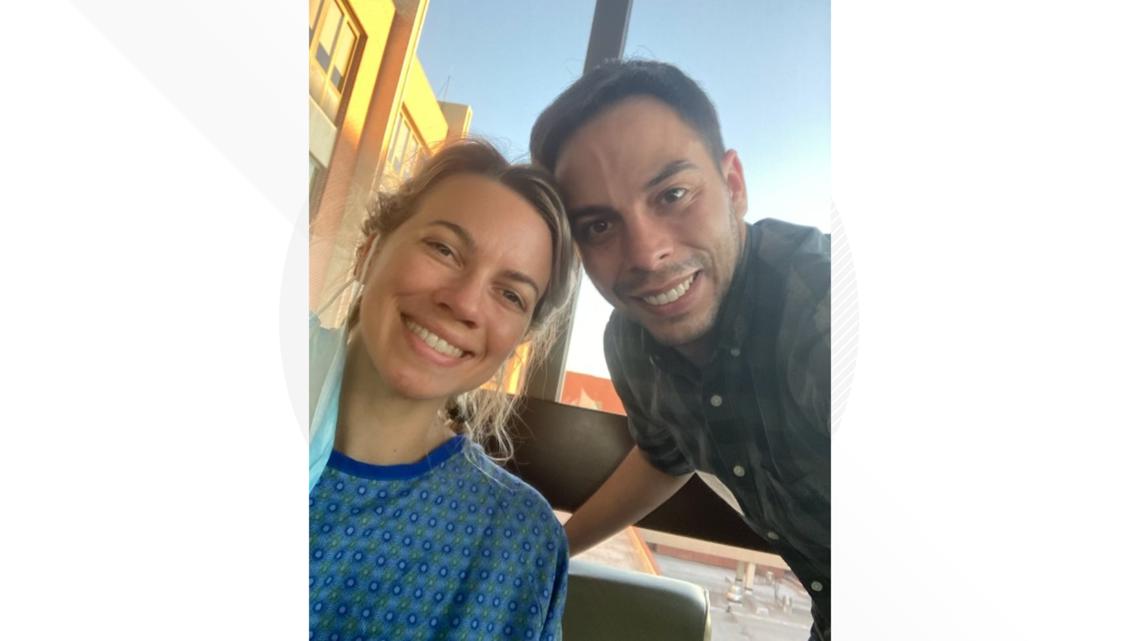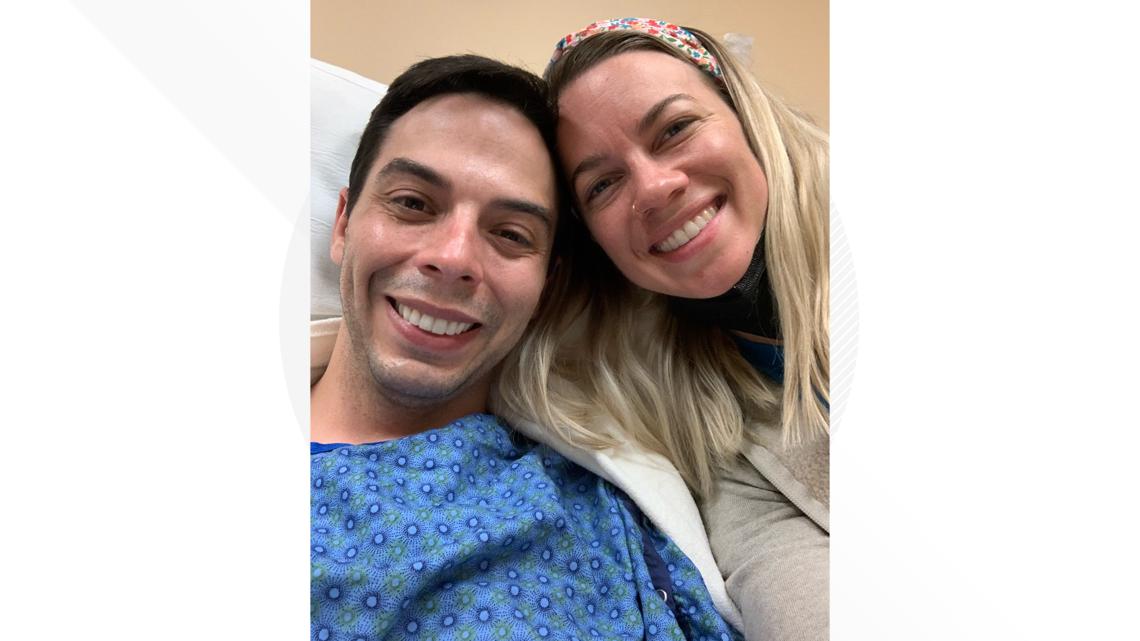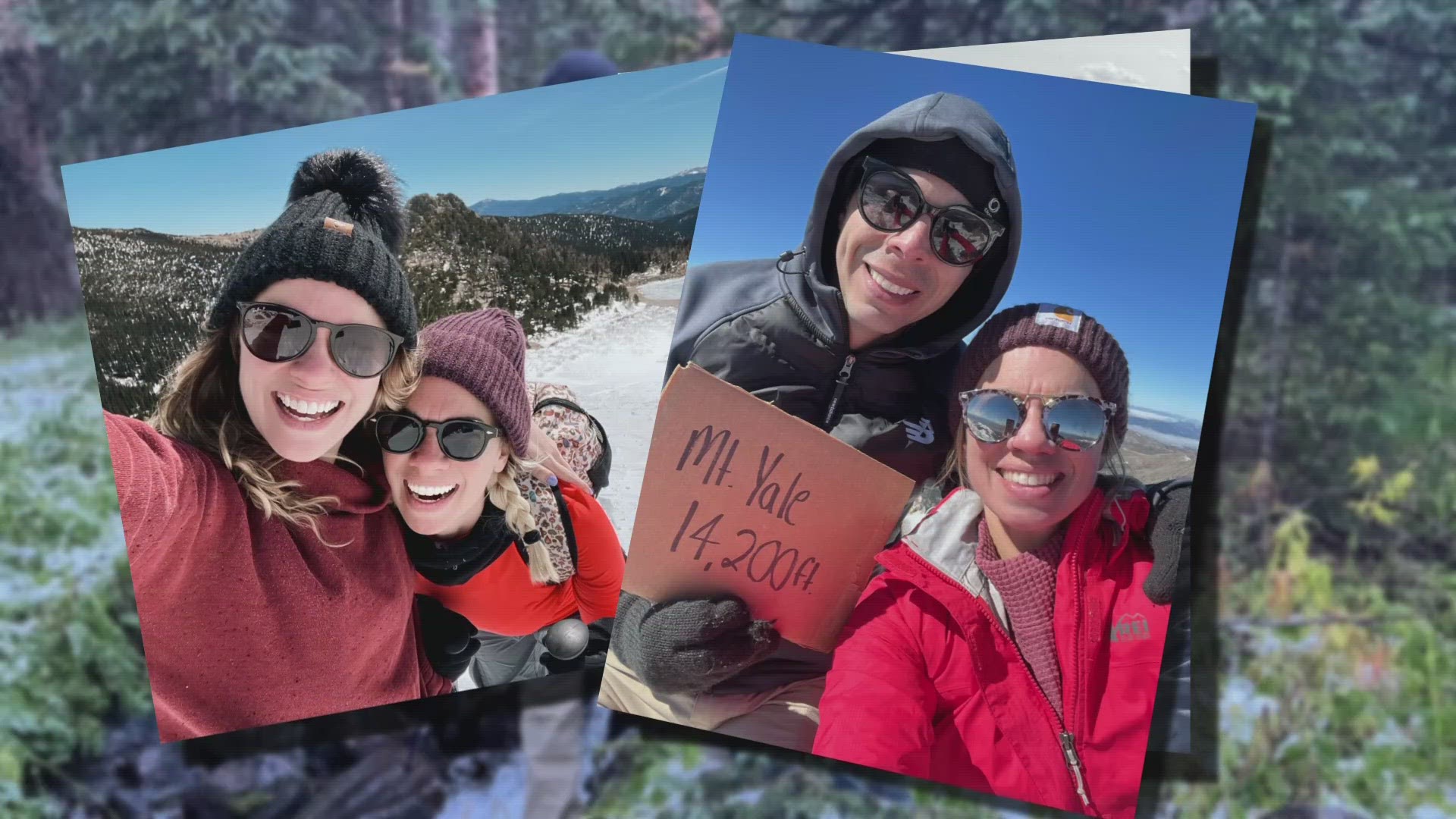DENVER — We've all met the people who want to do everything their spouse does – like learning to paint, or going for hikes. One couple in Denver decided they'd each give a lifesaving gift to a stranger.
Chelsea Barker had considered organ donation for most of her life.
"When I was a kid, my grandfather had a form of blood cancer and a bone marrow transplant would have been really great, but he unfortunately wasn't a good candidate," Barker said. "But it did really plant the seed and I thought, oh, transplant, that's really interesting that you can do that for someone."
After she and her husband Matt Fritz-Mauer moved to Denver, she found a transplant center near her, at AdventHealth Porter, and began the testing to see whether she could donate.


"By the time you get to the point where the hospital says 'yes, you are a candidate,' you know so much about your own health and your own body, and so it's a really easy," Barker said. "It was for me a really easy yes."
"Chelsea inspired me," Fritz-Mauer said. "So she donated her kidney first, and I got to watch her go through that process and go through it with her as her support, as a passenger. And my ultimate conclusion was wow, this is actually easy considering you're giving up an organ."
Eleven months after Barker donated her kidney to a stranger, Fritz-Mauer did the same.
"Once Chelsea recovered, it was an easy choice. It really was," he said.


Both recovered quickly, ready to resume their normal lives.
Barker said AdventHealth Porter had programs to help make organ donation easy for her.
"You know, I didn't have two-plus weeks of PTO in my bank just to take off, or more if my body needed it," Barker said. "I was able to take advantage of some protections that were offered through a program Porter participates in, but not every donor has that available to them."
She's hoping to see programs and resources expanded to make it easier for Coloradans who want to donate.
Last month, a bill called the CARE for Living Donors Act was introduced in the state legislature that would put protections for organ donors into state law – like prohibiting employers from discriminating against organ donors and establishing a voucher program to make it easier for a donor's loved ones to get a donation themselves down the road.
"So being able to make it easier for folks to say yes means that more people will live because more people will be able to become kidney donors," Barker said. "And I'm so proud to be able to help with that in any small way."
Barker said her grandfather passed away years ago, before seeing her donate a kidney. But through her kidney donation and now their work to help future donors, she's able to keep his memory alive.
“I know of course he’d be so proud," Barker said. "He was such a great person. So it’s nice to be able to remember him when I do this work.”
According to Dr. Scott Davis, a nephrologist at AdventHealth Porter Transplant Institute, more than 103,000 people across the country are waiting for an organ donation. Of those, 88,000 are waiting for a kidney.
Just in Colorado, Davis said, 1,249 people are waiting for an organ transplant. More than 1,000 of them are waiting on a kidney.
Davis said kidney donors go through an extensive evaluation that includes medical, surgical, psychosocial, dietary and financial criteria. Lab tests and radiology tests help determine whether a person will be suitable for donation.
Davis said the CARE for Living Organ Donors Act would help provide relief for those experiencing barriers to organ donation.
"The organ donation waitlist is not just a list of names; it's a ledger of lives in limbo, families in waiting, and individuals grappling with the daily realities of disease and the hope for a second chance. Colorado has a moral duty to remove the barriers to living organ donation. Lives depend on it," he said.
SUGGESTED VIDEOS: Feature stories

